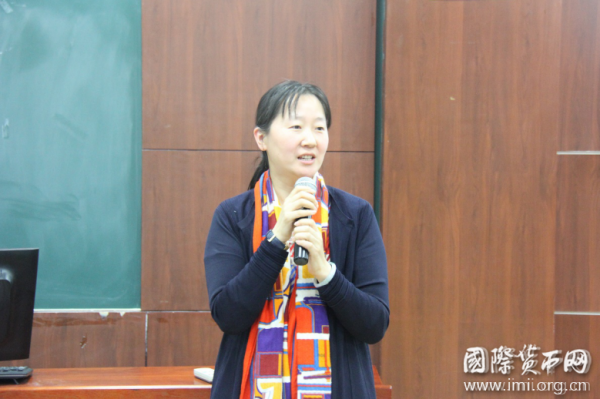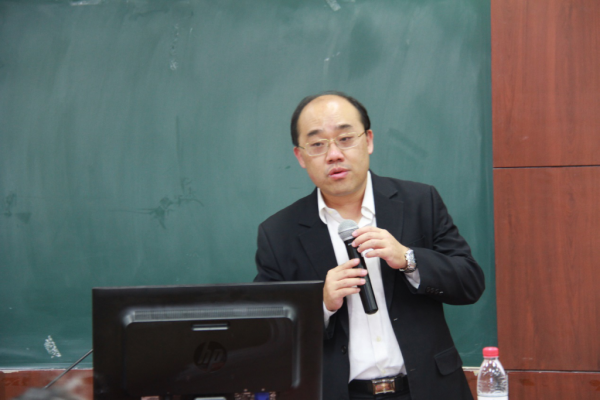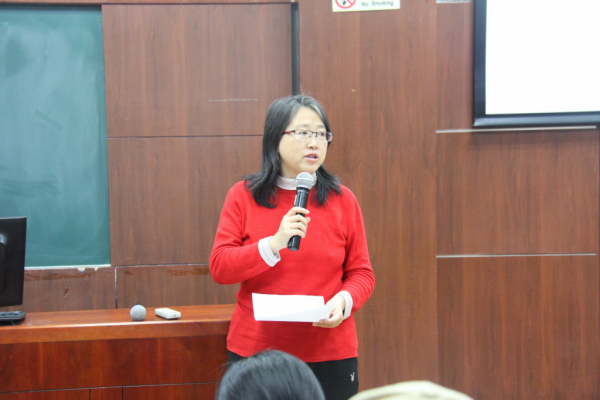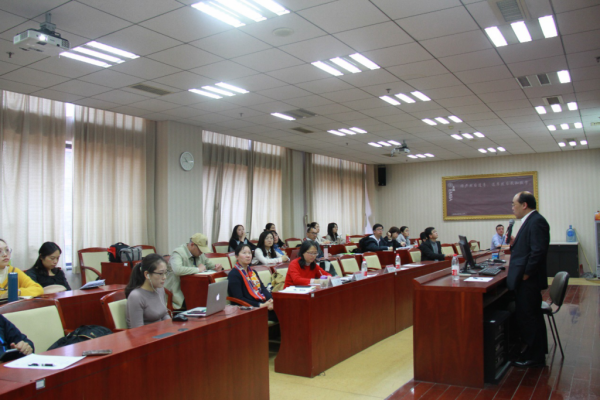Macro-Finance Salon (No. 107): Is the influence of the RMB on the Belt and Road Countries Enhanced?
2018-11-09 IMI Zhou Yinggang gave a speech on "Is the influence of the RMB on the Belt and Road Countries Enhanced?" He mentioned "five synergies", "four commons" and "three integrations" that are of great significance along the Silk Road. According to his explanation, "five links" stands for synergies in policy communication, trade exchange, capital finance, facilities connectivity, and people's values. The influence of the RMB on the countries along the “Belt and Road” is divided into two aspects: how to measure the RMB's influence along the Belt and Road, and how “five synergies” affect its regional influence. Zhou Yinggang first introduced his research method. To start off, he modeled the exchange rate between the RMB and the national currencies along the “Belt and Road”; then, he iteratively constructed a dynamic network of currency exchange rates between the major economies of the “Belt and Road”; last but not least, he looked for variables that represent the degrees of "five synergies" and introduced models so the degree of positive response from the "Belt and Road" countries can be represented by the degree of "five synergies". The result of the study shows that the influence of the renminbi on countries along the Belt and Road Initiative has increased, and the higher the level of the "five synergies" are, the higher the corresponding increase.
Zhou Yinggang gave a speech on "Is the influence of the RMB on the Belt and Road Countries Enhanced?" He mentioned "five synergies", "four commons" and "three integrations" that are of great significance along the Silk Road. According to his explanation, "five links" stands for synergies in policy communication, trade exchange, capital finance, facilities connectivity, and people's values. The influence of the RMB on the countries along the “Belt and Road” is divided into two aspects: how to measure the RMB's influence along the Belt and Road, and how “five synergies” affect its regional influence. Zhou Yinggang first introduced his research method. To start off, he modeled the exchange rate between the RMB and the national currencies along the “Belt and Road”; then, he iteratively constructed a dynamic network of currency exchange rates between the major economies of the “Belt and Road”; last but not least, he looked for variables that represent the degrees of "five synergies" and introduced models so the degree of positive response from the "Belt and Road" countries can be represented by the degree of "five synergies". The result of the study shows that the influence of the renminbi on countries along the Belt and Road Initiative has increased, and the higher the level of the "five synergies" are, the higher the corresponding increase.
 Subsequently, Tu Yonghong commented on the content of the speech. She believed that the perspective of "five synergies" proposed by Zhou Yinggang was very innovative and inspiring. The conclusions reached were realistic and she sincerely hoped an in-depth cooperation on this issue can be achieved. Afterwards, the guests actively interacted with the audience and fully exchanged ideas on the selection of the "five synergies", the validity of the model, and the realities of the national influence of the renminbi along the "Belt and Road".
Subsequently, Tu Yonghong commented on the content of the speech. She believed that the perspective of "five synergies" proposed by Zhou Yinggang was very innovative and inspiring. The conclusions reached were realistic and she sincerely hoped an in-depth cooperation on this issue can be achieved. Afterwards, the guests actively interacted with the audience and fully exchanged ideas on the selection of the "five synergies", the validity of the model, and the realities of the national influence of the renminbi along the "Belt and Road".

 The Macro-Finance Salon is a high-level academic salon jointly initiated and established by both the IMI and the Department of Monetary and Finance at the School of Finance in RUC, which is divided into four series: "policy experts", "academic masters", "industry elites" and "young scholars". The salon places emphasis on China's reality and the international frontier. It has built a high-level, professional and open academic exchange platform to promote the discipline of " wholistic finance" in the new era and to carry out relevant theories, policies and strategy research. Theoretically, the concept of " wholistic finance" derives from combining macro and micro financial theory, an idea proposed and advocated by Professor Huang Da. Conceptually, it derives from the systematic thinking of finance and the real economy as an inseparable and organic whole. Chen Yulu, deputy governor of the People's Bank of China, systematically demonstrated the basic connotation and methodology of "wholistic finance" in "The Outline of Wholistic Finance", laying the theoretical and empirical foundation for "wholistic finance", which is conducive to promoting long-term economic growth and enhancing national competitiveness.
The Macro-Finance Salon is a high-level academic salon jointly initiated and established by both the IMI and the Department of Monetary and Finance at the School of Finance in RUC, which is divided into four series: "policy experts", "academic masters", "industry elites" and "young scholars". The salon places emphasis on China's reality and the international frontier. It has built a high-level, professional and open academic exchange platform to promote the discipline of " wholistic finance" in the new era and to carry out relevant theories, policies and strategy research. Theoretically, the concept of " wholistic finance" derives from combining macro and micro financial theory, an idea proposed and advocated by Professor Huang Da. Conceptually, it derives from the systematic thinking of finance and the real economy as an inseparable and organic whole. Chen Yulu, deputy governor of the People's Bank of China, systematically demonstrated the basic connotation and methodology of "wholistic finance" in "The Outline of Wholistic Finance", laying the theoretical and empirical foundation for "wholistic finance", which is conducive to promoting long-term economic growth and enhancing national competitiveness.
